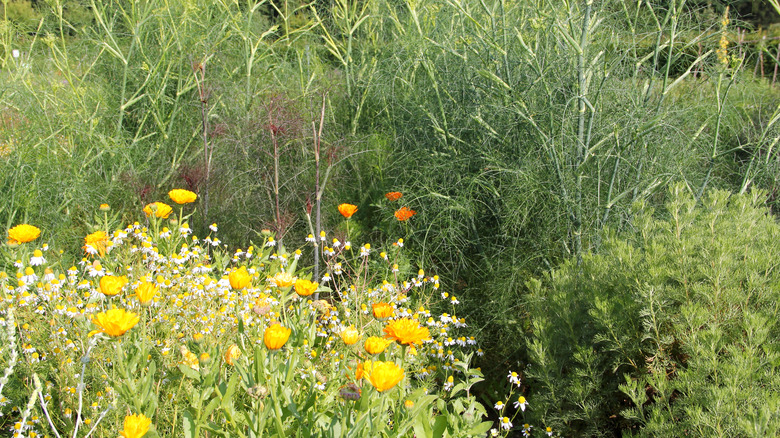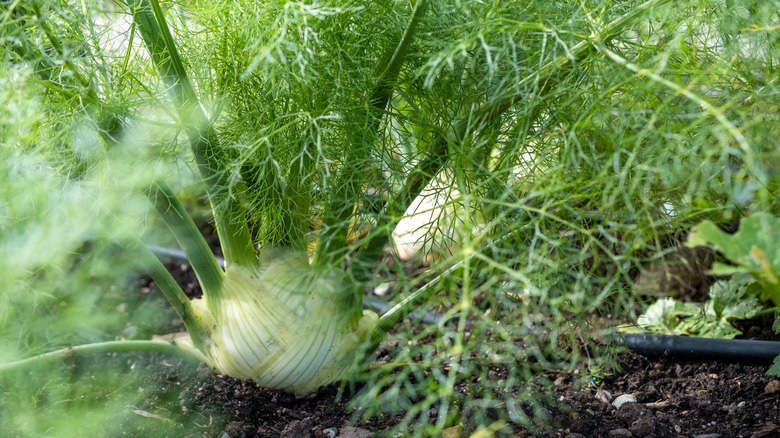You May Want To Think Twice Before Planting One Common Herb In Your Garden
Some herb pairs make the perfect garden companions, helping each other flourish or mutually protecting against pests. And then there's fennel. You won't find fennel recommended as a companion plant very often, and you might want to think twice about growing it in your garden. Rather than supporting other plants' growth, fennel inhibits it. Also, this plant is invasive in a number of states.
Fennel is allelopathic, meaning it has evolved a handy survival mechanism to keep other plants far away from itself. Fennel releases chemicals that prevent surrounding plants from growing properly, so they either don't germinate at all or their growth is stunted and they become inedible. Most popular vegetables are vulnerable to this effect, including tomatoes, peppers, carrots, eggplants, corn, potatoes, and cucumbers. Many herbs will also be affected, along with beans. In addition, fennel has a large taproot that can outcompete other plants for soil nutrients.
That doesn't mean there aren't any benefits to growing fennel. Its allelopathic abilities mean that it also inhibits the growth of weeds, such as dandelions. With its unique licorice-like flavor and smell, it has a long history of use in food, medicine, and beauty. Every part of the plant is edible, though common fennel (Foeniculum vulgare) is typically grown as an herb while Florence fennel (Foeniculum vulgare var. azoricum) is used as a vegetable. Regardless of the variety, you'll have to take precautions if you want to grow fennel.
How to grow fennel safely, and when to avoid it altogether
Since fennel is an herb you should avoid growing too close to other plants in the garden, it's best to give it plenty of its own space if you decide to give it a shot. Keep it at least 2 to 3 feet away from other veggies and herbs, or in a container of its own. A select few plants are so prolific that they can thrive even under the inhibiting effect of fennel, including mint and sage. Dill is also an option, but keep in mind fennel and dill can hybridize if you save the seed, which will change the flavor.
Another reason to avoid growing fennel in certain cases is because it's native to the Mediterranean, not North America. It has naturalized across the continent and often outcompetes native plants. In Oregon, Washington, and West Virginia, fennel is listed as an invasive species. It's also considered a problematic weedy plant in some other regions, like California. This is in part because of those same allelopathic tendencies that allow fennel to take over and suppress the growth of other species in the area. Additionally, fennel produces seeds in abundance, and its large, deep tap root makes it difficult to eradicate the plant completely once it has become established. If you live in an area where fennel is listed as invasive, keep it out of your garden altogether to reduce the risk of harm to nearby ecosystems.

